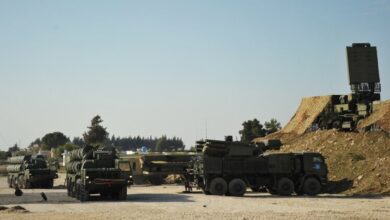India and UAE Sign Civil Nuclear Energy Pact: A Strategic Move Beyond Oil

India and the United Arab Emirates (UAE) have signed a landmark Civil Nuclear Energy Agreement, which marks a significant milestone in the energy cooperation between the two nations. This development holds substantial geopolitical significance as UAE opted for India over China, sending a strong message to the global community.
The Historic Pact and Its Importance
The recent visit of the Crown Prince of Abu Dhabi to India saw the formal signing of this agreement, highlighting the growing strategic relationship between India and the UAE. This collaboration aims to assist in the operation and maintenance of the UAE’s Barakah Nuclear Power Plant, the first-ever nuclear power plant in the Arab world. With India’s Nuclear Power Corporation of India Limited (NPCIL) joining hands with the Emirates Nuclear Energy Corporation, this agreement cements India’s position as a reliable partner in the global nuclear energy landscape.
Why UAE Needs Nuclear Energy
Despite its vast oil reserves, the UAE has been committed to reducing its carbon footprint and has set an ambitious goal of becoming a net-zero carbon country by 2050. As part of its climate commitment, the UAE is diversifying its energy mix, with nuclear energy playing a crucial role in achieving its sustainability goals. The Barakah Nuclear Power Plant, located on the UAE’s coast, is a pivotal component of this transition, contributing to 25% of the country’s electricity needs.
While the plant has been operational, the UAE recognizes the need for experienced partners to ensure its long-term operational success. This is where India’s expertise becomes invaluable. India has a track record of operating and maintaining nuclear plants safely, and its involvement in Barakah will enhance the plant’s operational efficiency.
The Role of India in UAE’s Nuclear Ambitions
India’s involvement in the UAE’s nuclear sector goes beyond just operational support. With Russia facing sanctions that limit its ability to supply nuclear fuel, India could act as a critical intermediary, potentially importing uranium from Russia and exporting it to the UAE. This role positions India as a central player in the global nuclear energy market.

Moreover, India’s growing nuclear power capabilities and its safe handling of nuclear energy further enhance its credibility. By choosing India over other countries like China, Japan, or Australia, the UAE is not only seeking operational expertise but also forging stronger diplomatic and economic ties with India.
UAE’s Barakah Nuclear Power Plant: A Regional Gamechanger
The Barakah Nuclear Power Plant is not just a symbol of the UAE’s energy ambitions but also a source of tension in the region. Qatar, a neighboring Gulf country, raised concerns about the potential risks the plant could pose to the region’s environmental and geopolitical stability. Qatar’s apprehensions are driven by the plant’s proximity to its borders and the fear of potential nuclear accidents that could affect its territory.
However, despite these concerns, the UAE remains steadfast in its nuclear ambitions, aiming to become a leader in clean energy in the Arab world.
Strengthening India-UAE Relations: More than Just Nuclear Cooperation
The nuclear energy pact is just one of many collaborative efforts between India and the UAE. The two nations have already signed a Free Trade Agreement and are exploring opportunities for deeper cooperation in sectors like energy, education, and infrastructure.
The Abu Dhabi National Oil Company (ADNOC) and Indian Oil Corporation Limited (IOCL) have also signed a long-term LNG supply agreement, ensuring that India continues to meet its energy demands through reliable LNG imports from the UAE.
In the education sector, India’s prestigious Indian Institute of Technology (IIT) Delhi has opened its first international campus in Abu Dhabi, further strengthening the bilateral relationship. This move highlights the growing exchange of knowledge and innovation between the two countries.
The Impact of the India-UAE Nuclear Deal on Global Geopolitics
This civil nuclear energy agreement enhances India’s stature on the global stage. By partnering with the UAE, India sends a clear signal of its nuclear energy capabilities and its willingness to contribute to global energy security. For the UAE, choosing India over China or other major nuclear powers shows a preference for trusted and stable partnerships.
The agreement also comes at a time when both countries are increasingly important players in the evolving global order. India, with its growing economy and strategic importance, and the UAE, as a regional powerhouse, are working together to reshape global energy dynamics.
Conclusion
The India-UAE civil nuclear energy pact is more than just an energy agreement—it’s a strategic move that strengthens the bilateral relationship and positions both countries as key players in the future of nuclear energy and clean power. As the world looks for sustainable and reliable energy sources, this partnership is set to create a lasting impact not only for India and the UAE but for the global community.
Pakistan’s Oil and Natural Gas Discovery: A Reality or Another False Hope?





